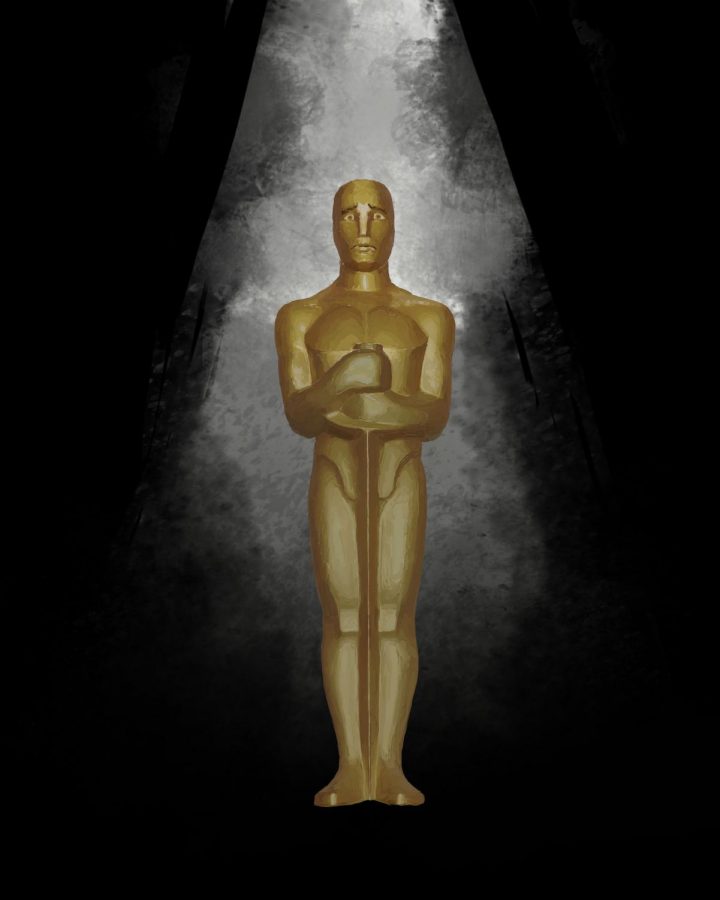Oscars Revoke Proposal of Popular Film Category after Backlash
After announcing the addition of a popular movie category on Aug 8. 2018, the Academy Awards revoked their proposal on Sept. 5. 2018. Major backlash ensued following the original announcement Ratings for the Oscars have been on the decline; the 2017 awards ceremony marked the lowest viewership in history.
October 2, 2018
On Aug. 8, 2018, the Academy Awards announced via Twitter new changes to the time-honored Oscars ceremony: an earlier premiere date for the 2020 showing (Feb. 9), a strict, three hour show length, and a new category honoring popular films. However, only one of these additions stuck in the public’s mind. Announced late in the year with no criteria for how a movie would receive this new nomination, a month of heavy backlash ensued against the popular film category. As The Washington Post reports, the new category “was immediately assailed by some prominent film critics” who viewed the addition as a cheap ploy for more viewers. The Academy announced the removal of the popular film category on Sept. 5, 2018. A statement released on the Oscars’ website by the CEO of the Academy, Dawn Hudson, read: “There has been a wide range of reactions to the introduction of a new award, and we recognize the need for further discussion with our members.” The Academy asserted that the rest of the proposed changes would remain in place.
While many people gained satisfaction from the removal of the new category, others wished popular films would get recognized at the Oscars. “It would have been cool to have a best popular film category in the Oscars,” expresses freshman Jessica Han. With increasingly dropping ratings, a category honoring the year’s fan favorites might be the answer to regaining viewers. According to The New York Times, only 26.5 million people tuned into the 2018 Oscars, the lowest viewership in history; the show also experienced a 20 percent drop in viewers from the year prior.
After losing such a substantial number of viewers, the Oscars are searching for new ways to reach audiences. With a takeover of the media market by streaming services coupled with backlash from previous years, the Academy may have believed that a popular movie category would raise viewership. As increasing numbers of people turn to Netflix and Amazon for entertainment, TV has shrunk in popularity. According to senior Anthony Chow, “You’ll have people watching Netflix or Hulu…every day but it’s not as common for people to just go home and sit down and turn on the TV anymore.” Recent controversies including the #OscarsSoWhite outcry against lack of diversity in the 2015 nominees, as well as the 2018 La La Land mishap, where the movie was mistakenly announced as Best Picture, have contributed to bad press surrounding the awards show. Between dwindling interest in television combined with controversies from past years, recognizing the most popular movies in some way could attract viewers once more.
In previous years, when blockbuster movies achieved recognition at the Oscars, ratings soared. For example, as reported by CNN and CNBC, the movie Titanic triumphed at the box office and won Best Picture in 1998, drawing in 55.25 million viewers, the highest ratings ever for the awards show. Despite criticism, a movie honoring the year’s biggest money-makers could draw in a similar sized audience.
On the other hand, the Academy failed to make evident which popular movies would instead receive Best Picture nominations, or if they could receive both. As NPR reported, many believed Black Panther merited a Best Picture nomination. Junior Leslie Michels comments, “I feel like it could be a Best [Picture] because it was an amazing movie and it really engaged you in it, and it did have an impact. It named some of the…issues that society faces today.” With the possibility of a Most Popular Movie category, and the absence of guidelines to whether a movie could receive nominations for both, critics denounced the likelihood of Black Panther winning a trivial award despite its achievement in both critical acclaim and racial representation.
After the popular movie backlash, various controversies, and failing ratings, are the Oscars on the decline in viewership in the long run? Sophomore Matthew Mascavage says, “I think it’s going to probably die down over the years.” He thinks that the Oscars are “just kind of the same thing…that if they switched it up a bit, adding new categories, taking away old ones, it’d really make it kind of a new experience for watchers.” Perhaps such change could entice audiences to tune in to see both the typical type of nominees and wildly popular films represented on the award show.
On the other hand, certain changes could potentially discredit the Oscars if it no longer truly represents the best films of the year based purely on quality. Senior Sunny Lee believes that any changes to the Best Picture category such as requirements like certain revenue or popularity achievement “would actually discredit it just because then it says you have to be popular to be a good movie but there have been tons of really meaningful pieces that not a lot of people have seen just because it’s really deep and kind of heavy.” To many, the purpose of the Academy Awards is to honor achievement in art, not popularity or revenue. As a compromise, Lee thinks an honorable mentions list of the year’s blockbusters could strike compromise with traditional viewers and those looking for change by “[letting the audience] know a little bit about the film[s], credit the actors and directors.”
After such large backlash for reasons ranging from preventing movies like Black Panther from getting misrepresented, to resistance to the Oscars creating a category largely to gain more viewers, to those believing a popular movie category devalues the ceremony, ultimately only time will tell what is in store for the Academy Awards.




